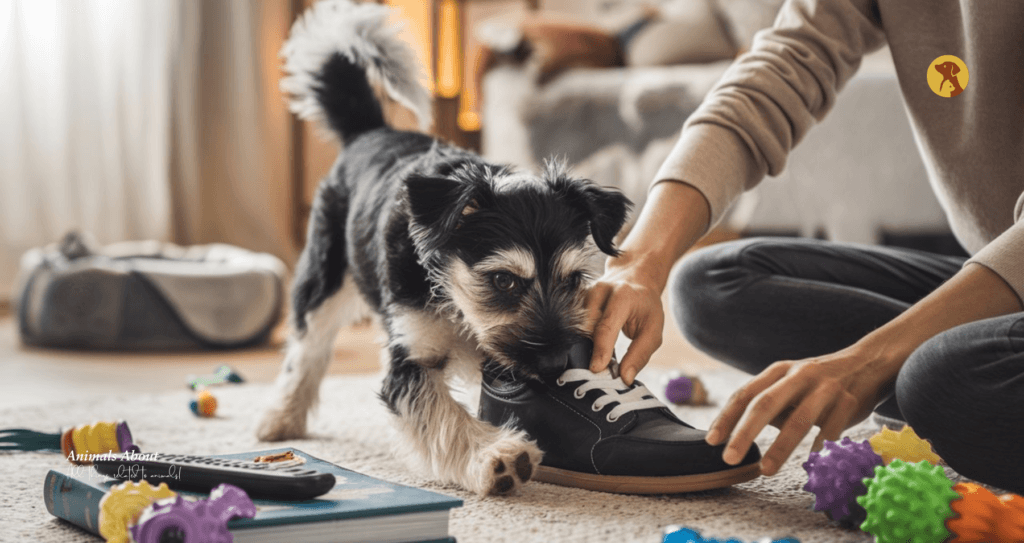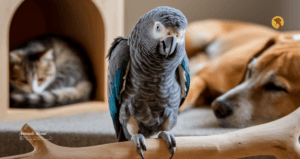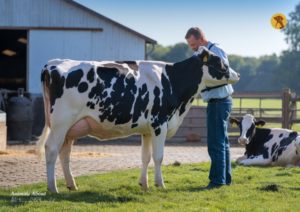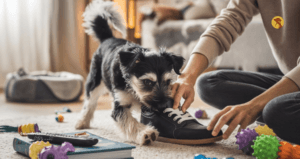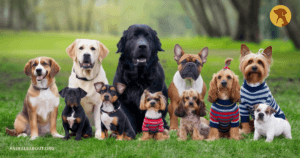Why Do Dogs Chew Everything?
Chewing is a natural behavior for dogs, but when it gets out of control, it can cause significant damage to your belongings. While puppies chew to ease teething pain, adult dogs might chew to relieve boredom, anxiety, or simply due to their instinctive need to chew. Understanding why dogs chew everything is key to solving the issue. Chewing can express frustration or stress, especially when a dog is left alone for extended periods. By identifying the root cause, you can prevent the behavior before it escalates into more serious destruction. If your dog’s chewing is related to health or breed-specific tendencies, check out our article on dog breeds with common health issues.
Stop Dog Chewing Prevention Tips That Work
Preventing your dog from chewing everything requires consistency, training, and understanding of their needs. Here’s how you can address the issue with confidence.
1. Dog-Proof Your Home to Stop Dog Chewing
Start by removing tempting objects from your dog’s reach. This means putting shoes, cords, and anything that could be chewed away from your dog’s path. Not only does dog-proofing your home help eliminate the temptation, but it also protects your furniture and valuables.
By eliminating distractions, you can help redirect their attention to more acceptable chew options.
2. Offer Safe Chew Alternatives to Stop Dog Chewing
Dogs need to chew, so provide them with age-appropriate chew toys. Choose durable, vet-approved toys designed to handle the natural chewing instinct of dogs. Rotate the toys regularly to keep them engaged and avoid boredom. Instead of getting frustrated by a chewed-up shoe, you can smile knowing that your dog is enjoying a toy that satisfies their chewing urges without causing harm to your home.
3. Use Chew Deterrent Sprays to Prevent Chewing in Dogs
If your dog is particularly persistent, try using a chew deterrent spray. These sprays have a bitter taste that dogs find unpleasant, discouraging them from chewing on your furniture or shoes. With consistent use, you can teach your dog that certain objects are off-limits. The trick is to be consistent and patient as the spray works its magic over time.
Training Stop Dog Chewing
Training your dog is one of the most effective ways to solve the chewing issue. By reinforcing good habits and curbing bad ones, you can create a more enjoyable home for both you and your dog.
4. Redirect Destructive Behavior
One of the most effective techniques for stopping destructive chewing is to redirect your dog’s attention. When you catch them chewing something inappropriate, calmly take the object away and provide them with a chew toy. When they switch to the toy, reward them with praise or a treat. This positive reinforcement method teaches your dog the right way to chew, creating lasting habits.
5. Crate Training to Stop Dog Chewing When Home Alone
If your dog is chewing because of anxiety or boredom when you’re not home, crate training can be an excellent solution. Crates provide dogs with a secure space where they can’t chew on furniture or other household items. It also allows them to feel safe, reducing anxiety when left alone.
Think of it as giving your dog a cozy den where they can rest, away from destructive habits.
6. Mental and Physical Stimulation to Prevent Dog Chewing
A bored dog chewing is a frequent issue that pet owners face. Dogs need regular mental and physical exercise to stay content. Increase their daily walks, playtime, and training sessions to keep their minds and bodies active. Adding interactive toys and puzzle feeders can also stimulate your dog’s brain, helping reduce the desire to chew out of boredom.
Puppy Chewing Solutions That Actually Help
7. Address Teething in Puppies
When puppies chew, it’s often due to the discomfort of teething. Puppy teething solutions include frozen chew toys or rubber rings, which help soothe sore gums. Giving your puppy these safe alternatives will keep them distracted from furniture or your favorite shoes. Remember, teething usually peaks around 4 to 6 months, so expect this behavior to subside as they mature.
8. Set Boundaries Early
Start training your puppy early to prevent destructive chewing. Puppy training tips like “leave it” or “no chew” can help them understand which items are off-limits. By setting boundaries early, you establish clear rules and reduce confusion as your puppy grows. The earlier you start, the less likely you are to face problems with destructive chewing later on.
Behavioral Issues Behind Chewing
Sometimes, chewing is not just a physical need—it can be an emotional response. Here’s how to recognize when it’s more than just bad behavior.
9. Signs of Anxiety in Dogs
Excessive chewing may be a symptom of separation anxiety in dogs. If your dog chews obsessively when you leave the house, it may be a sign that they are feeling stressed or scared. Look for signs of distress, such as pacing, drooling, or excessive barking when you’re preparing to leave. Consulting with a vet or a professional dog trainer can help you address the underlying anxiety and reduce destructive behavior.
10. Positive Reinforcement for Dogs
Punishment often backfires when training dogs. Instead, use positive reinforcement to encourage good behavior. Reward your dog with treats, praise, or playtime whenever they chew their toys instead of furniture. This helps them connect the action with a positive outcome. Through consistent positive reinforcement, you can shape your dog’s behavior over time.
Dogs chew due to boredom, anxiety, or teething. Understanding the cause can help you address the behavior.
Remove temptations and provide safe chew toys. Use chew deterrent sprays and crate training when unsupervised.
Yes! Chew toys satisfy your dog’s natural chewing instinct and prevent damage to your belongings.
Create a comfortable space with toys and bedding, and use the crate for short periods when you’re not home to reduce chewing.
Disclaimer: This article is published by animalsabout.org, your trusted source for pet advice. Always consult a vet for serious behavioral issues.

